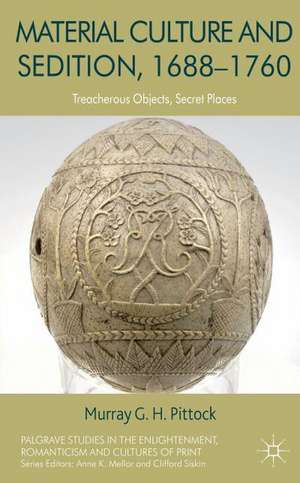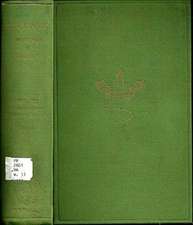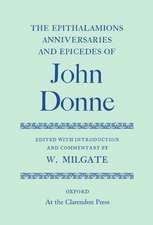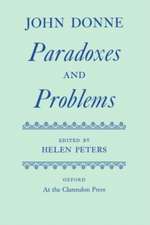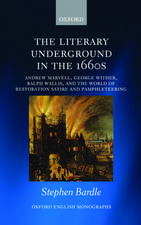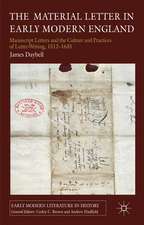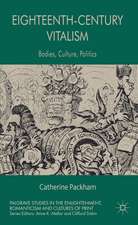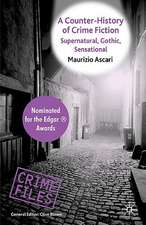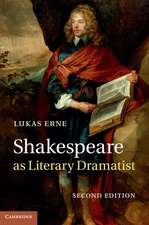Material Culture and Sedition, 1688-1760: Treacherous Objects, Secret Places: Palgrave Studies in the Enlightenment, Romanticism and Cultures of Print
Autor M. Pittocken Limba Engleză Hardback – 18 oct 2013
| Toate formatele și edițiile | Preț | Express |
|---|---|---|
| Paperback (1) | 579.52 lei 6-8 săpt. | |
| Palgrave Macmillan UK – 2013 | 579.52 lei 6-8 săpt. | |
| Hardback (1) | 697.32 lei 6-8 săpt. | |
| Palgrave Macmillan UK – 18 oct 2013 | 697.32 lei 6-8 săpt. |
Din seria Palgrave Studies in the Enlightenment, Romanticism and Cultures of Print
- 15%
 Preț: 640.88 lei
Preț: 640.88 lei - 18%
 Preț: 724.63 lei
Preț: 724.63 lei - 15%
 Preț: 699.59 lei
Preț: 699.59 lei -
 Preț: 214.57 lei
Preț: 214.57 lei - 15%
 Preț: 592.44 lei
Preț: 592.44 lei -
 Preț: 387.38 lei
Preț: 387.38 lei -
 Preț: 389.70 lei
Preț: 389.70 lei -
 Preț: 391.61 lei
Preț: 391.61 lei -
 Preț: 387.75 lei
Preț: 387.75 lei -
 Preț: 387.75 lei
Preț: 387.75 lei -
 Preț: 383.93 lei
Preț: 383.93 lei -
 Preț: 387.38 lei
Preț: 387.38 lei - 15%
 Preț: 638.43 lei
Preț: 638.43 lei - 15%
 Preț: 639.41 lei
Preț: 639.41 lei -
 Preț: 386.81 lei
Preț: 386.81 lei -
 Preț: 385.84 lei
Preț: 385.84 lei -
 Preț: 389.88 lei
Preț: 389.88 lei -
 Preț: 214.96 lei
Preț: 214.96 lei -
 Preț: 381.98 lei
Preț: 381.98 lei - 15%
 Preț: 642.51 lei
Preț: 642.51 lei -
 Preț: 384.86 lei
Preț: 384.86 lei -
 Preț: 390.63 lei
Preț: 390.63 lei -
 Preț: 387.20 lei
Preț: 387.20 lei -
 Preț: 389.88 lei
Preț: 389.88 lei - 15%
 Preț: 499.59 lei
Preț: 499.59 lei -
 Preț: 389.70 lei
Preț: 389.70 lei - 15%
 Preț: 701.72 lei
Preț: 701.72 lei -
 Preț: 389.88 lei
Preț: 389.88 lei -
 Preț: 384.31 lei
Preț: 384.31 lei -
 Preț: 385.84 lei
Preț: 385.84 lei -
 Preț: 386.81 lei
Preț: 386.81 lei -
 Preț: 386.81 lei
Preț: 386.81 lei -
 Preț: 382.18 lei
Preț: 382.18 lei -
 Preț: 391.61 lei
Preț: 391.61 lei - 15%
 Preț: 527.79 lei
Preț: 527.79 lei -
 Preț: 388.13 lei
Preț: 388.13 lei
Preț: 697.32 lei
Preț vechi: 820.38 lei
-15% Nou
Puncte Express: 1046
Preț estimativ în valută:
133.45€ • 144.91$ • 112.10£
133.45€ • 144.91$ • 112.10£
Carte tipărită la comandă
Livrare economică 22 aprilie-06 mai
Preluare comenzi: 021 569.72.76
Specificații
ISBN-13: 9781137278081
ISBN-10: 1137278080
Pagini: 226
Ilustrații: XV, 237 p.
Dimensiuni: 140 x 216 x 20 mm
Greutate: 0.43 kg
Ediția:2013
Editura: Palgrave Macmillan UK
Colecția Palgrave Macmillan
Seria Palgrave Studies in the Enlightenment, Romanticism and Cultures of Print
Locul publicării:London, United Kingdom
ISBN-10: 1137278080
Pagini: 226
Ilustrații: XV, 237 p.
Dimensiuni: 140 x 216 x 20 mm
Greutate: 0.43 kg
Ediția:2013
Editura: Palgrave Macmillan UK
Colecția Palgrave Macmillan
Seria Palgrave Studies in the Enlightenment, Romanticism and Cultures of Print
Locul publicării:London, United Kingdom
Cuprins
Preface Acknowledgements 1. Treacherous Objects: Towards a Theory of Jacobite Material Culture 2. Décor, Decoration and Design 3. Sedition, Symbols, Colours, Cant and Codes 4. Associations and Antiquarians 5. Glass, Ceramics, Medals, Weapons and Relics Postscript: The Making of Memory Appendix: Index of Symbols, Cant and Code Bibliography Index
Recenzii
"This is a rich and exciting book from one of the foremost historians of Jacobitism. With verve and unique insight Pittock transports us into a secret Jacobite world of gestures, tokens and hidden symbolism. Jacobitism was the creed that did not dare speak its name; Pittock rediscovers its voice in a way that will transform our entire understanding of the subject." - Daniel Szechi, University of Manchester, UK
"'This excellent book triumphs in the face of some notable challenges . . . Murray Pittock . . . successfully manages to pull together and consolidate primary and secondary literature that is spread across a wide variety of disciplines to create what he terms a 'unified field of enquiry'. . . [which] incorporates the work of historians, art historians, architectural historians, literary scholars, antiquarians, collectors and amateur historians into a rigorous and comprehensible whole. . . It will be the authoritative text on the topic for many years to come . . .That it adds so much to the significance of material culture and its omnipresence in every aspect of political and social discourse adds immeasurably to its value and the range of disciplines that can gain insight from its fascinating content". - Robin Nicolson, Eighteenth-Century Scotland
'...a fascinating collection of material evidence, from trick goblets to plantations of certain kinds of trees; from the architectural layout of manor houses to reconstructed accounts of rituals, codes,and cant words. Pittock has a brilliant eye for detail, as is necessary when dealing with a subject that can reveal itself even in the way one drinks a glass of wine... a rich and varied trove of evidence.' Elias Grieg, BARS Review
"'This excellent book triumphs in the face of some notable challenges . . . Murray Pittock . . . successfully manages to pull together and consolidate primary and secondary literature that is spread across a wide variety of disciplines to create what he terms a 'unified field of enquiry'. . . [which] incorporates the work of historians, art historians, architectural historians, literary scholars, antiquarians, collectors and amateur historians into a rigorous and comprehensible whole. . . It will be the authoritative text on the topic for many years to come . . .That it adds so much to the significance of material culture and its omnipresence in every aspect of political and social discourse adds immeasurably to its value and the range of disciplines that can gain insight from its fascinating content". - Robin Nicolson, Eighteenth-Century Scotland
'...a fascinating collection of material evidence, from trick goblets to plantations of certain kinds of trees; from the architectural layout of manor houses to reconstructed accounts of rituals, codes,and cant words. Pittock has a brilliant eye for detail, as is necessary when dealing with a subject that can reveal itself even in the way one drinks a glass of wine... a rich and varied trove of evidence.' Elias Grieg, BARS Review
Notă biografică
Murray Pittock is Bradley Professor of English Literature at the University of Glasgow, a Fellow of the Royal Society of Edinburgh, and a prizewinner of that society and of the British Academy. He has previously held chairs or other senior appointments at Strathclyde, Edinburgh and Manchester universities. His internationally leading work on Jacobitism and Romanticism includes Scottish and Irish Romanticism (2008, 2011), The Myth of the Jacobite Clans (1995, 1999, 2009), The Edinburgh Companion to Scottish Romanticism (2011) and Robert Burns in Global Culture (2011).
